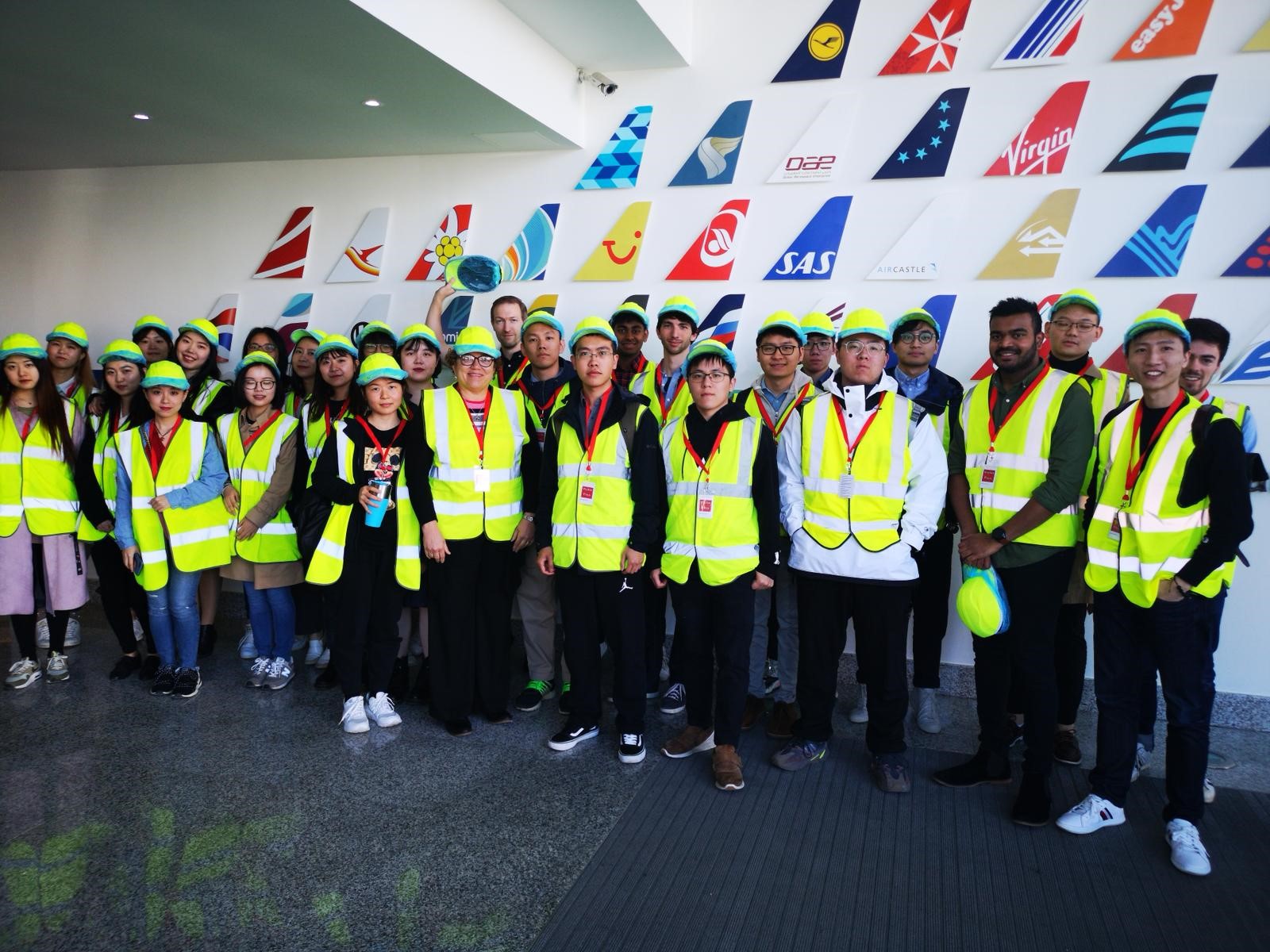Lufthansa Technik – Malta Study Tour 2019
02/05/2019

During the study tour in Malta, we had the chance to visit Lufthansa Technik. It is a maintenance centre where they check and repair aeroplanes from different airline companies including Lufthansa.
The production part of the site has a capacity of 7 aircrafts and offers mostly C-checks (every 12 to 18 months) and D-checks (every 4-5 years). Aircraft maintenance checks are periodic inspections that have to be done on all Airlines and other commercial operators of large or turbine-powered aircraft. A and B checks are lighter checks, while C and D are considered heavier checks. As the product is extremely expensive and valuable, every action made on the plane must be listed and comply with the customer demand. When a new issue has been revealed, they have to first wait for the airline company to agree for them to change or repair that part. As there is an exhaustive list of things to check, they implemented a very clear visual management system to keep track of the work progress. It is very important to remain on schedule or be able to predict exactly how much delay there is going to be, if there is a delay, as the planes are used for commercial flights. This management system also enables the presentation of KPIs such as productivity and number of working hours. With colour-coding it is easily understandable if the team did well, or not, each day.
As there is an incredible number of parts on each plane and which varies according to the plane type and the airline company, an optimised warehouse is a key factor in the success of the company. There are on average 800 parts each day which are being sent from the warehouse to the production lines. The receiving process takes time as different inspections are required to check all the parts received. In fact, the team explained “Swiss cheese” effect to us: the different checking will enable to find the different hole of the cheese. As their expertise is different, they do not see all the same holes.
One thing which did amaze us is that the warehouse deliver the spare parts to the hangars required with a bicycle, this is a really good eco-friendly initiative. Picking is manual and parts are either brought to the hangars, despatched to other Lufthansa Technik facilities or given back to the different airlines when required. In addition, 3D printers are used in Lufthansa Technik, they enable the staff to print some specific spare parts they need.

A big thanks to the people that contributed to the organisation of this visit. It was really interesting and impressive to see how in practice concepts are applied to this specific sector.
Categories & Tags:
Leave a comment on this post:
You might also like…
Introducing… Bloomberg Trade Flows
Are you interested in world trade flows? Would it be useful to know which nations are your country's major trading partners? If so, the Bloomberg terminal has a rather nifty function where you can view ...
Cranfield alumni voyage to the International Space Station
Seeing our alumni reach the International Space Station (ISS) has a ripple effect that extends far beyond the space sector. For school students questioning whether science is “for them”, for undergraduates weighing their next ...
From classroom to cockpit: What’s next after Cranfield
The Air Transport Management MSc isn’t just about learning theory — it’s about preparing for a career in the aviation industry. Adit shares his dream job, insights from classmates, and advice for prospective students. ...
Setting up a shared group folder in a reference manager
Many of our students are now busy working on their group projects. One easy way to share references amongst a group is to set up group folders in a reference manager like Mendeley or Zotero. ...
Company codes – CUSIP, SEDOL, ISIN…. What do they mean and how can you use them in our Library resources?
As you use our many finance resources, you will probably notice unique company identifiers which may be codes or symbols. It is worth spending some time getting to know what these are and which resources ...
Supporting careers in defence through specialist education
As a materials engineer by background, I have always been drawn to fields where technical expertise directly shapes real‑world outcomes. Few sectors exemplify this better than defence. Engineering careers in defence sit at the ...






